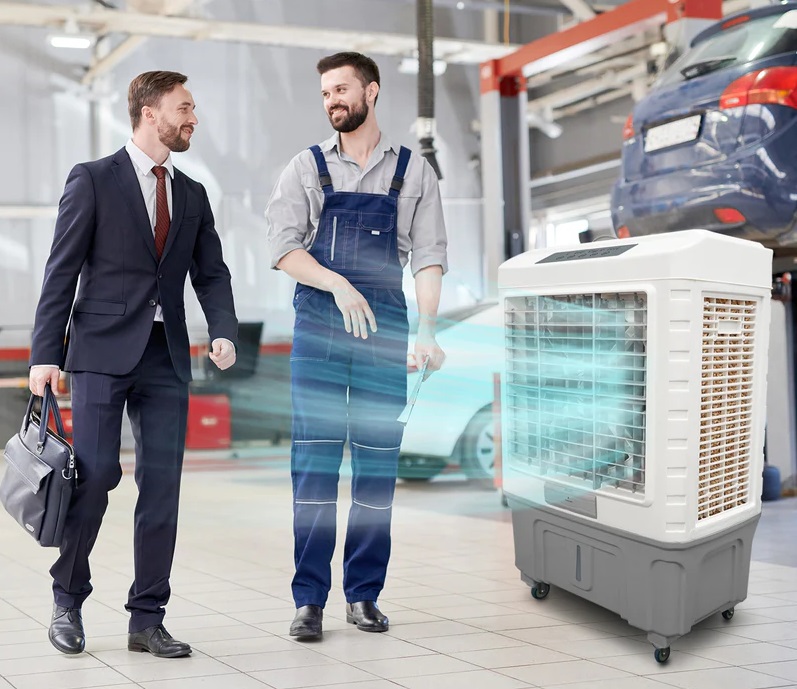Industrial swamp coolers, or evaporative coolers, are a sustainable and eco-friendly alternative to traditional air conditioning systems. These cooling devices offer numerous environmental advantages by harnessing the power of water evaporation. This article will explore how industrial swamp coolers contribute to a greener and more sustainable future.
Energy Efficiency: A Lower Carbon Footprint
One of the key environmental advantages of industrial swamp coolers is their energy efficiency. Unlike conventional air conditioning systems that rely on energy-intensive compressors and refrigerants, swamp coolers primarily use natural evaporation to cool the air. This results in significant energy savings, directly translating into a lower carbon footprint. Studies have shown that swamp coolers can reduce energy consumption by up to 75% compared to traditional AC units, reducing greenhouse gas emissions.
Water as a Cooling Agent
Industrial swamp coolers utilize water as their primary cooling agent, making them a more environmentally friendly choice. Traditional air conditioning systems rely on refrigerants, which can harm the ozone layer and contribute to global warming. In contrast, swamp coolers consume water, a natural and renewable resource, without emitting any harmful gases or pollutants. This not only reduces the ecological impact but also promotes water conservation in comparison to traditional cooling methods.
Reduced Carbon Emissions
By using industrial swamp coolers, businesses can significantly reduce their carbon emissions. The lower energy consumption of swamp coolers translates to a decreased reliance on fossil fuel-based power sources. This, in turn, helps mitigate air pollution and the associated environmental and health risks. Businesses can contribute to a cleaner and healthier environment by opting for a more sustainable cooling solution.
Improved Air Quality
Industrial swamp coolers not only cool the air but also improve indoor air quality. Evaporation adds moisture to the air, reducing dryness and creating a more comfortable environment. Additionally, swamp coolers help filter out dust, allergens, and pollutants, leading to cleaner and healthier air. This can positively impact the well-being of employees and occupants, reducing respiratory issues and allergies associated with poor indoor air quality.
Sustainable Cooling Solutions
Swamp coolers offer a sustainable cooling solution for various industrial settings. They are particularly effective in open or semi-open spaces like warehouses, factories, and workshops. These systems can efficiently cool large areas, providing relief from high temperatures without relying on excessive energy consumption. Furthermore, industrial swamp coolers are designed to be low maintenance, reducing the need for frequent repairs and replacements, which further contributes to their sustainability.
Conclusion
Industrial swamp coolers present numerous environmental advantages compared to traditional air conditioning systems. Their energy efficiency, use of water as a cooling agent, reduced carbon emissions, improved air quality, and sustainable cooling solutions make them an attractive option for businesses looking to reduce their environmental impact. By embracing these eco-friendly cooling solutions, companies can create a more comfortable and productive workspace while actively contributing to a greener and more sustainable future. Embracing industrial swamp coolers not only benefits businesses but also the planet as a whole. As more organizations recognize the importance of sustainable practices, adopting these environmentally friendly cooling systems is poised to grow, helping to create a better future for future generations.


